
L'acqua di idrogeno è una tendenza salutare popolare che ha guadagnato attenzione recentemente. Con il nostro generatore di acqua di idrogeno, puoi facilmente produrre acqua arricchita di idrogeno direttamente a casa. Questa acqua unica contiene alti livelli di idrogeno molecolare disciolto, che può fornire numerosi benefici per la salute. Alcuni dei benefici includono la riduzione dell'infiammazione, il miglioramento della funzione cerebrale e la protezione del tuo corpo dallo stress ossidativo. Quindi, se stai cercando un modo naturale ed efficace per migliorare la tua salute, investire in un generatore di acqua di idrogeno è una scelta eccellente.
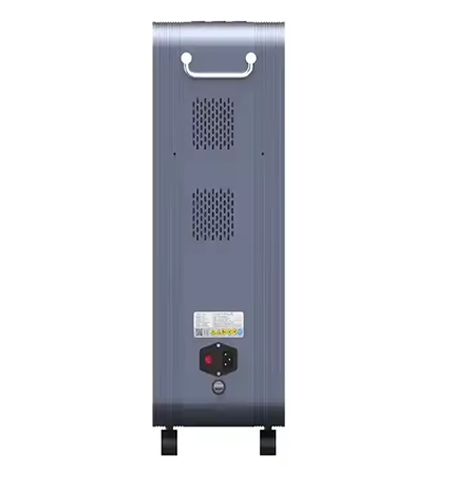
Quando si hanno bisogno di macchine per l'inalazione di idrogeno affidabili e di alta qualità, è importante fidarsi di un fornitore e di un produttore riconosciuti. Siamo una società stimata in questo settore chiamata Minter che si occupa di prodotti sanitari di prim'ordine. Il nostro idroinalatore è stato progettato in modo che chiunque possa usufruire del gas idrogeno comodamente perché ha numerosi benefici per la salute. Essendo uno dei principali produttori e fornitori di macchine per l'inalazione dell'idrogeno, ci assicuriamo che soddisfino i massimi standard di qualità e affidabilità.
La soddisfazione del cliente rimane al centro di ogni attività svolta in Minter perché qui non si tollerano nulla di meno dell'eccellenza. Tutti i nostri dipendenti mettono il loro meglio in avanti quando producono beni o trattano con i clienti assicurandosi di ottenere ciò che vogliono e più quando possibile, costruendo così forti relazioni tra clienti e fornitori nel tempo, insieme a soddisfare soddisfacentemente le diverse richieste dei clienti, che stabilisce la lealtà tra di loro verso il marchio di questa In questo senso, essendo ben consapevoli dei diversi aspetti riguardanti l'assistenza sanitaria, disponiamo di una vasta gamma di prodotti realizzati con materiali di alta qualità, in modo che possano servire efficacemente il loro scopo per tutto il tempo necessario, rendendo così le persone ancora più attente a noi quando cercano macchine per l'inhalazione

Minter, un nome noto nel campo della sanità, ha ideato un prodotto unico per chi desidera una salute naturale: la macchina per l'inalazione di idrogeno. Questo apparecchio all'avanguardia consegna molecole di idrogeno che sono molto conosciute per le loro forti capacità antiossidanti direttamente nei polmoni. La terapia dell'idrogeno della menta elimina i radicali liberi dannosi per le cellule, promuovendo così il benessere cellulare e la salute generale del corpo. Può essere integrato nella routine di qualsiasi persona interessata a rimanere in buona salute, poiché consente di utilizzare il trattamento con idrogeno senza difficoltà.
L'eccezionale progettazione e le caratteristiche di facilità d'uso rendono la nostra macchina per l'inalazione dell'idrogeno superiore alle sue concorrenti. Sappiamo quanto sia importante fornire prodotti sanitari di buona qualità a Minter, quindi costruiamo macchine precise e affidabili. Che si tratti di un ambiente clinico o di una casa, questo dispositivo garantisce un utilizzo senza soluzione di continuità in modo che le persone possano ottenere tutti i benefici derivanti dagli effetti terapeutici associati all'uso di idrogeno dall'inalatore di Minter. È abbastanza piccolo da adattarsi a qualsiasi cosa si possa avere bisogno durante la giornata impegnata rendendo la vita sana più facile che mai.

Il nome del marchio Minter è sinonimo dell'industria della salute e ha ora rilasciato la sua macchina per inalazione di idrogeno all'avanguardia, che può essere utilizzata da aziende che desiderano creare programmi di benessere per i loro clienti o dipendenti. Utilizza l'energia dell'idrogeno a livelli avanzati che erano precedentemente sconosciuti per offrire un'esperienza terapeutica; pertanto, si adatta bene ai centri di benessere, ai resort di bellezza e ai programmi di salute aziendale.
Le nostre macchine per inalazione che utilizzano idrogeno non sono come le altre perché, oltre alla scienza, uniscono anche comfort. Normalmente genera idrogeno molecolare molto puro, garantendo così un uso sicuro attraverso l'inalazione da parte di persone che necessitano di antiossidanti: questo gas di Minter può essere respirato senza rischi o inefficienze. È abbastanza semplice anche per un principiante; si possono personalizzare le impostazioni a seconda delle esigenze, rendendole le più adatte per diversi luoghi di lavoro dove l'individualizzazione è fondamentale.
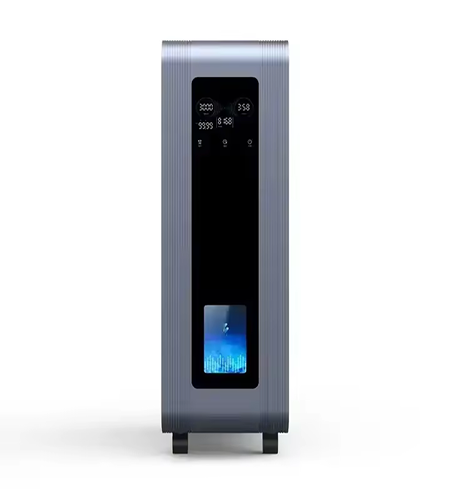
La ricerca di nuove soluzioni nel campo dell'assistenza sanitaria ha portato all'invenzione della macchina per la respirazione a idrogeno. Questo è un tipo speciale di attrezzatura sviluppata da Minter, nota per i suoi prodotti di qualità nel settore. Si può quindi affermare senza alcun dubbio che il nostro apparecchio per l'inalazione è un cambiamento di gioco per quanto riguarda la fornitura di assistenza sanitaria.
La macchina per l'inalazione di idrogeno di Minter utilizza una tecnologia avanzata per offrire un'esperienza di guarigione unica. Produce gas idrogeno puro attraverso mezzi scientifici e questo gas è ciò che i pazienti respirano. Queste molecole aiutano a neutralizzare sostanze nocive all'interno delle cellule, promuovendo così un migliore utilizzo dell'ossigeno a livello cellulare. Inoltre, offre un'opzione di trattamento non invasiva per i fornitori di assistenza sanitaria che desiderano migliorare le funzioni respiratorie, come ridurre l'infiammazione intorno ai polmoni o migliorare i livelli di energia in generale, tra le altre cose. Senza dubbio, il dispositivo di Minter garantisce procedure sicure mentre raggiunge risultati desiderati, rendendolo un componente indispensabile per ogni istituzione medica.
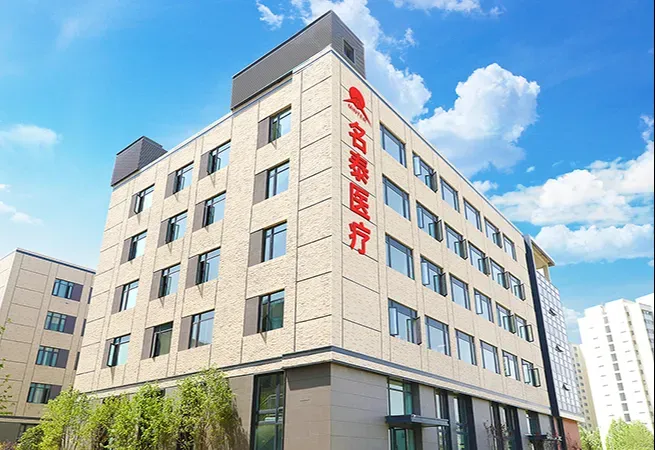
Zhengzhou Minter Medical Devices Co., Ltd. è un fornitore professionale di prodotti sanitari. Con molti anni di esperienza, Minter dispone di un proprio centro di ricerca e sviluppo specializzato e di una base di produzione di attrezzature mediche.
Dalla cura con cui selezioniamo le materie prime fino a una rigorosa ispezione dei prodotti, ci assicuriamo che ogni passo soddisfi i più elevati standard di qualità. Ora la maggior parte dei prodotti Minter® ha superato le certificazioni CE, ISO, ROHS, FCC e altre.
I nostri prodotti principali sono prodotti sanitari come inalatori di idrogeno, bottiglie d'acqua a idrogeno, prodotti dentali, prodotti per massaggi e attrezzature di fisioterapia.
Poiché diamo sempre la priorità alla soddisfazione del cliente e forniamo un eccellente supporto post-vendita, i nostri prodotti hanno conquistato grande popolarità tra i clienti provenienti da Nord America, Sud America, Europa occidentale, Europa orientale, Asia sudorientale, ecc.
Il nostro dipartimento R&D fornisce un forte supporto tecnico e ci consente di offrire OEM e ODM ai clienti all'estero in tutto il mondo. Accogliamo calorosamente i clienti di casa e a bordo per venire a visitare la nostra fabbrica e stabilire relazioni di cooperazione con noi. Non vediamo l'ora di avere una maggiore cooperazione.
Abbiamo un team di elite incentrato sulla ricerca e sviluppo dei prodotti e collaboriamo con un certo numero di università rinomate per raggiungere una cooperazione strategica nella produzione, nell'istruzione e nella ricerca, per introdurre tecnologie avanzate internazionali e integrarle nei prodotti.
Con un impegno per l'eccellenza, Minter attua rigorose misure di controllo della qualità durante tutto il processo produttivo. Dalla meticolosa selezione delle materie prime alle accurate ispezioni dei prodotti, ogni passo è conforme ai più elevati standard qualitativi. Questa dedizione all'assicurazione della qualità si traduce in prodotti che soddisfano o superano costantemente le certificazioni normative come CE, ISO, ROHS, FCC, garantendo affidabilità e sicurezza per i clienti in tutto il mondo.
Forniamo servizi OEM/ODM e supporti tecnici professionali per tutti i clienti che ci inviano campioni dei prodotti, ne progetteremo e svilupperemo di migliori basati sui campioni.Per ogni cliente,sceglieremo il materiale più adatto e anche il materiale innovativo per i loro prodotti.
L'enfasi posta da Minter sulla soddisfazione dei clienti e sul supporto post-vendita stellare ha spinto i suoi prodotti a grande popolarità in diverse regioni, tra cui Nord America, Sud America, Europa occidentale, Europa orientale e Asia sudorientale. Questo diffuso riconoscimento indica la capacità del marchio di risonare con un pubblico globale e di stabilire una forte presenza nei mercati chiave.
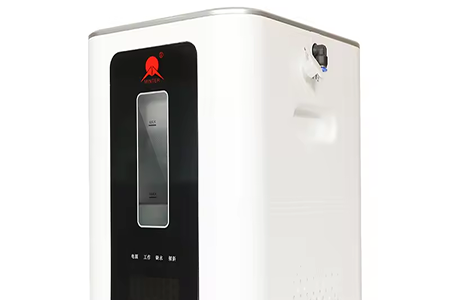
30
Apr
30
Apr
30
AprE' un dispositivo che genera aria ricca di idrogeno per l'inalazione, promuovendo benefici per la salute.
Elettrolizza l'acqua per produrre idrogeno, che gli utenti possono poi inalare.
L'elevata efficienza, la facilità di utilizzo e le caratteristiche di sicurezza sono i punti salienti della nostra macchina.
È fondamentale pulirlo regolarmente e seguire le istruzioni del produttore.

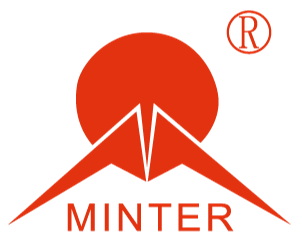
Copyright © - Informativa sulla Privacy